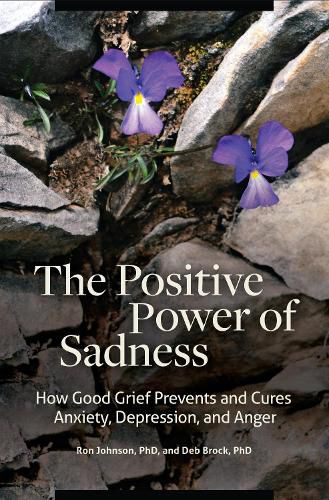Readings Newsletter
Become a Readings Member to make your shopping experience even easier.
Sign in or sign up for free!
You’re not far away from qualifying for FREE standard shipping within Australia
You’ve qualified for FREE standard shipping within Australia
The cart is loading…






Written by two clinical psychologists with nearly a century of combined experience, this book explains how people who suffer from depression, anxiety, or undue anger can overcome these difficulties by allowing the normal process of grieving to occur.
Sadness is generally characterized as a negative emotion, yet experiencing sadness plays a positive and key role in achieving and maintaining mental health and in avoiding anxiety, depression, and anger. Indeed, sadness can be understood as a normal and necessary feeling that always occurs when one loses something that is loved. The Positive Power of Sadness examines the experience of sadness, taking into account the personal, relational, and neurological factors of sadness; explains the cultural reasons that many resist feeling sad and consequently displace sadness into secondary processes; and provides a practical and systematic way to overcome anger, anxiety, and depression by allowing the normal process of being sad to occur.
This simple paradigm of love and loss causing joy and sorrow in tandem is founded on solid research, carefully considered theory, and extensive experience and will serve to stimulate further thought and writing. Professional therapists, psychologists, counselors, teachers, and clergy who work with people in various settings will find this enlightening reading, as will general readers seeking self-help or possessing an interest in psychological functioning or relational difficulties.
Provides a solid foundation for understanding anger, anxiety, and depression as well as a practical and solid approach for overcoming these difficulties
Examines the neurological factors associated with feelings, particularly sadness, and identifies the relational complications that arise when one experiences sadness
Describes the cultural and personal resistance to the experience of sadness that often compels people to keep their sadness bottled up
Explains how anger, anxiety, and depression can be prevented by accepting and experiencing sadness
$9.00 standard shipping within Australia
FREE standard shipping within Australia for orders over $100.00
Express & International shipping calculated at checkout
Written by two clinical psychologists with nearly a century of combined experience, this book explains how people who suffer from depression, anxiety, or undue anger can overcome these difficulties by allowing the normal process of grieving to occur.
Sadness is generally characterized as a negative emotion, yet experiencing sadness plays a positive and key role in achieving and maintaining mental health and in avoiding anxiety, depression, and anger. Indeed, sadness can be understood as a normal and necessary feeling that always occurs when one loses something that is loved. The Positive Power of Sadness examines the experience of sadness, taking into account the personal, relational, and neurological factors of sadness; explains the cultural reasons that many resist feeling sad and consequently displace sadness into secondary processes; and provides a practical and systematic way to overcome anger, anxiety, and depression by allowing the normal process of being sad to occur.
This simple paradigm of love and loss causing joy and sorrow in tandem is founded on solid research, carefully considered theory, and extensive experience and will serve to stimulate further thought and writing. Professional therapists, psychologists, counselors, teachers, and clergy who work with people in various settings will find this enlightening reading, as will general readers seeking self-help or possessing an interest in psychological functioning or relational difficulties.
Provides a solid foundation for understanding anger, anxiety, and depression as well as a practical and solid approach for overcoming these difficulties
Examines the neurological factors associated with feelings, particularly sadness, and identifies the relational complications that arise when one experiences sadness
Describes the cultural and personal resistance to the experience of sadness that often compels people to keep their sadness bottled up
Explains how anger, anxiety, and depression can be prevented by accepting and experiencing sadness